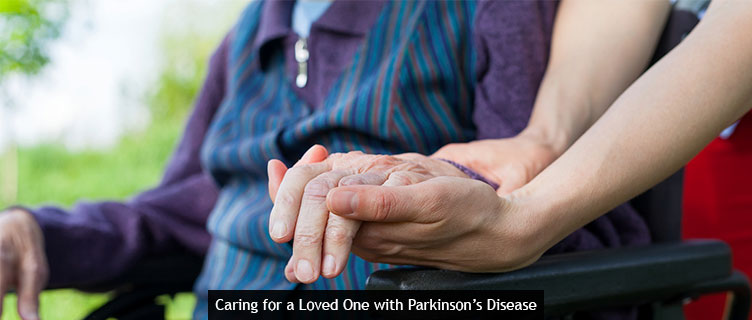Parkinson’s disease has gained more attention over the years thanks to people speaking out about their diagnoses and raising awareness. A number of well-known individuals have struggled with this disease including Michael J. Fox, Muhammad Ali, Janet Reno, Alan Alda, Neil Diamond, and Linda Ronstadt. Because Parkinson’s is a progressive neurological disease, it affects each person differently. Not everyone experiences the same symptoms with the same severity.
This can make being a caregiver to someone with Parkinson’s even more challenging because you never know exactly what to expect. There is not a cut-and-dry solution for how to manage this disease. However, there are ways that you can be proactive in caring for your loved one and decrease some of the stress you may feel.
Educate Yourself.
Learn as much as you can about Parkinson’s disease so you have a better idea of what to expect. Be alert to signs that may indicate the disease is progressing such as changes in mood or mobility. You can play an integral role in your loved one’s care team because you see them on a daily basis and may notice changes your loved one does not that you can share with healthcare providers.
Ask Questions.
Since everyone experiences Parkinson’s differently, ask your loved one what you can do to help. Many people want to retain as much independence as possible, so be there for support and assistance as needed, but also let them do as much as they can on their own, as long as they’re safe. Make the most of the present and their abilities right now to maximize their quality of life, then adjust moving forward as the disease progresses. Help them continue doing activities they enjoy to boost their mood.
Stay Organized.
Keep a list of any doctors or specialists that work with your family member so you know who does what and how to get ahold of them. Write down any medications your loved one is taking, why they take it, when it is administered, and what the dosage is. Note any side affects or adverse reactions as well. It can be helpful to have a calendar where you write down all of their appointments, when medications were started or stopped, and when you noticed certain symptoms. Bring this calendar along to appointments for reference.
Practice Self-Care.
As you’re caring for your loved one, don’t forget to take care of yourself too. Being a caregiver is a lot of work. Make time to do things you enjoy such as spending time with friends, exercising, doing a hobby, or going to the movies. Remember that your health and well-being is important too.
Get Support.
Dealing with Parkinson’s is not something that you have to do alone. Join a support group where you can connect with others who are going through the same thing. It can be beneficial to have others to talk to who understand first-hand and can offer insight or advice. Build a support network of family and friends who can also help with your loved one and share responsibilities.
An in-home caregiver can also be a wonderful addition to the care team. They can provide the level of support necessary to help your loved one maintain their independence and age in place more safely and comfortably. A trained caregiver can assist with tasks around the home and activities of daily living that have become more challenging for your loved one. They can also provide you with a break and be another set of eyes and hands so you don’t become burned out.

